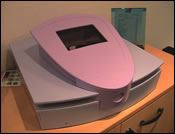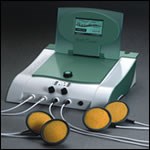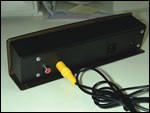Tool-Less Technology Designed For Low Production Runs
A new semi-automated CNC machining and fabrication process called Tool-Less™ Technology had been developed by Tool-Less Plastic Technologies, LLC (Mukilteo, WA).
A new semi-automated CNC machining and fabrication process called Tool-Less™ Technology had been developed by Tool-Less Plastic Technologies, LLC (Mukilteo, WA) for lower-volume projects ranging from 250 to 500 units per month. Moldmakers can present this technology to their customers as an option to “test” a mold and work out the bugs before designing and building the actual mold. The finished product using this technology can be used for pre-injection mold pilot production runs, ongoing low-volume production, clinical trials or market feasibility tests.
The technology—developed in the ‘80s in France—has been applied primarily to electronics enclosure manufacture in the U.S., typically in low-volume, high value arenas like medical, laboratory instrument, industrial and commercial electronics.
The key to this technology lies in the design. Enclosures that have been designed using this technology are “broken up” into individual pieces and parts to be machined and processed separately, and then solvent bonded to-gether in final assembly. Each part is programmed and machined as a flat pattern using CNC routers. The flat patterns are then processed through a series of secondary operations that add finish details to the edges—like chamfers and radii, and V-grooves to locate the heat bends that are later applied using a CNC heat bender. All interface details have been machined into the flat pattern during the initial CNC operation, so in final assembly there is no clamping or fixturing—parts are simply snapped into the pre-machined locator recesses and grooves almost like Lego™ pieces. Then, they are bonded in place, creating a strong, integral enclosure.
Advantages of this technology include low upfront costs and the ability to make last-minute design changes—even during pro-duction. According to Tool-Less Plastic Technologies President Jim Fowler, it could bridge that “awkward start-up period of product development/ product introduction when a customer can’t economically justify the cost and inflexibility of injection mold tooling, but needs a custom plastic enclosure to prove out the product and bring the prospect back to the moldmaker when product quantities justify tooling.”
Related Content
-
Editorial Guidelines: Editorial Advisory Board
The Editorial Advisory Board of MoldMaking Technology is made up of authorities with expertise within their respective business, industry, technology and profession. Their role is to advise on timely issues, trends, advances in the field, offer editorial thought and direction, review and comment on specific articles and generally act as a sounding board and a conscience for the publication.
-
How to Improve Your Current Efficiency Rate
An alternative approach to taking on more EDM-intensive work when technology and personnel investment is not an option.
-
Dynamic Tool Corporation – Creating the Team to Move Moldmaking Into the Future
For 40+ years, Dynamic Tool Corp. has offered precision tooling, emphasizing education, mentoring and innovation. The company is committed to excellence, integrity, safety and customer service, as well as inspiring growth and quality in manufacturing.














.jpg;maxWidth=300;quality=90)



